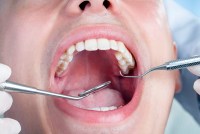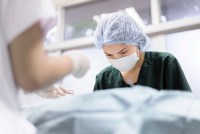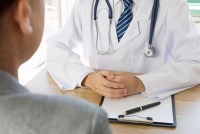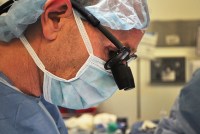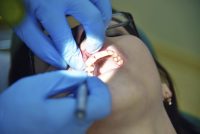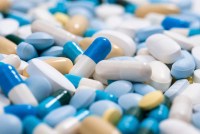It’s In The Water: The Debate Over Fluoridation Lives On
Though fluoride has been added to water for decades, grass-roots opposition still pops up in towns and cities around the country.
Seattle Dentists, Clinics And A Hospital Partner To Provide Specialty Care For Teeth
A pilot project involving Swedish Medical Center and the Neighborcare Health network of community clinics offers care for uninsured adults or those on Medicaid.
Shhh! America’s Most Common Workplace Injury Is Hearing Loss
According to the Centers for Disease Control and Prevention, hearing loss is the most common work-related injury with approximately 22 million workers exposed annually to hazardous levels of occupational noise. The Department of Labor has issued a challenge to find new ways to turn down the volume.
What Happens When A Living Kidney Donor Needs A Transplant?
A new study examines how well efforts are working that prioritize the needs of these patients if they end up needing a kidney transplant of their own.
Screening Positive For Depression Doesn’t Mean You’ll Get Treatment, Study Finds
A study in JAMA Internal Medicine suggests that patients known as the “worried well” are actually the highest utilizers of mental health care — and likely to receive antidepressants.
Another Reason To Diet: Experts Find Additional Evidence Of Obesity-Cancer Link
A review by the International Agency for Research on Cancer reaffirms earlier findings that excess body fat increases the risks for certain cancers.
Doctors, Hospitals Prepare For Difficult Talks Surrounding Medical Mistakes
MedStar Health is among the hospital systems nationwide that are setting up support systems to help doctors talk openly to patients and their families when treatments go awry.
Genetic Insights About Health Risks Limited By Lack Of Diversity, Study Finds
A study in the New England Journal of Medicine detailed how the diagnoses of risk for a common hereditary heart disease may have been skewed because studies have traditionally had low numbers of black participants.
Medical Providers Try Uber, Lyft For Patients With Few Transportation Options
Some hospitals and other medical providers are experimenting with ride-hailing services to help patients without access to cars get to their appointments.
Surgeon Says Apps May Turn Organ Donation Support Into ‘Concrete Action’
Dr. Thomas Fishbein of the Medstar Georgetown Transplant Institute is optimistic that efforts by hospitals like his, advocacy groups and app makers, such as Tinder, will increase the number of organ donors.
For Surgeons, Talking About Adverse Events Can Be Difficult: Study
Research suggests surgeons might be better off if they learn to quickly and directly explain what went wrong to the patient.
New Funding Seeks To Help Clinics Swamped By Demand For Dental Care
HHS awarded $156 million to 420 health centers around the country in the first grants ever specifically geared to dental care.
Patients Sometimes Take Antibiotics Without Consulting A Doctor, Study Finds
Instead of getting a doctor’s prescription, these patients opt to use leftover, unfinished medication from previous ailments.
Report: ‘Convergence Science’ Has Potential To Accelerate The Research-To-Product Pipeline
Some say this trend is the future of biomedical research. But along with its potential, it also faces significant challenges.
American ‘Stem Cell Tourists’ Don’t Have To Travel Abroad, Study Says
Treatments marketed as everything from anti-aging applications to therapies for degenerative diseases are increasingly available at commercial clinics in the U.S., but their growing numbers raise ethical and regulatory concerns in the scientific community.
Harmful Chemicals Are Everywhere — But What Does That Mean?
A report by the Environmental Working Group measures how much Americans are exposed to a variety of chemicals that may be linked to cancer.




